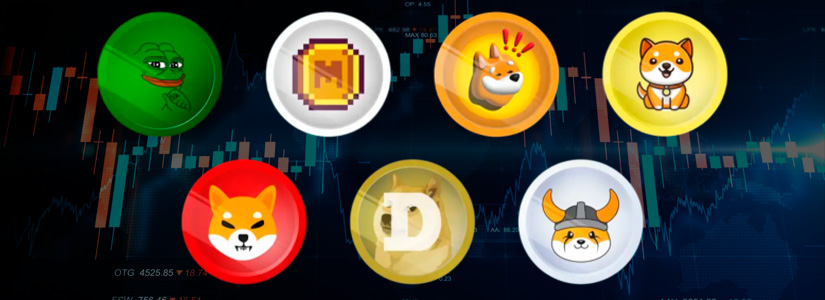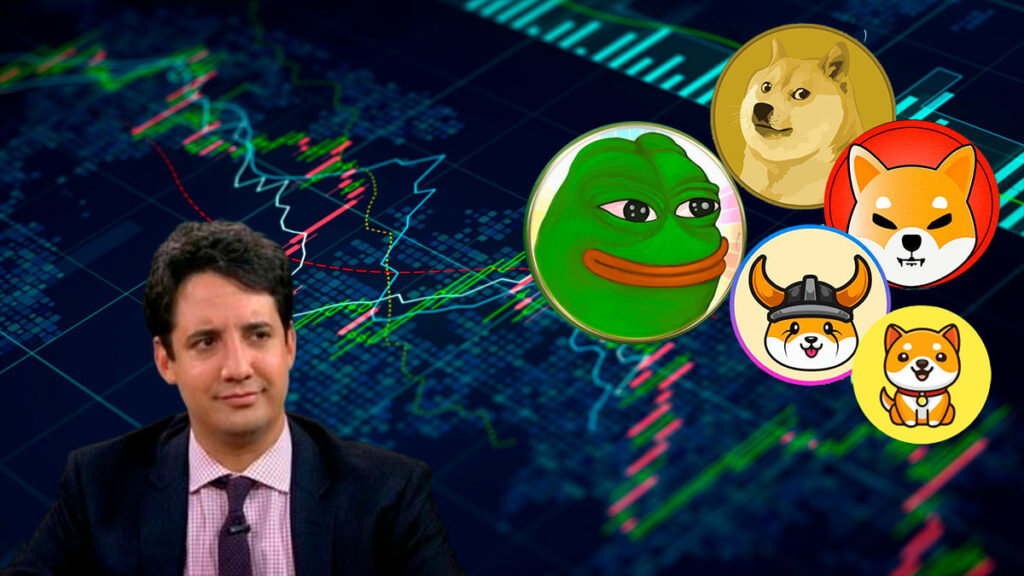TL;DR
- Joe Weisenthal discussed the rapid growth of memecoins, their speculative nature, and their potential for significant returns. He highlighted that meme coins cater to the demand for highly asymmetric investment opportunities, which traditional equities rarely offer.
- The conversation also touched upon the regulatory challenges facing meme coins. Doug Colkitt, the founder of Ambient Finance, raised doubts about the possibility of nurturing successful businesses in such an unregulated setting.
- Weisenthal stressed the importance of a balanced regulatory approach that would safeguard investors while still promoting innovation and growth in the financial sector.
In a recent discussion, Joe Weisenthal, co-anchor of “What’d You Miss?” on Bloomberg Television, shared his wisdom about the rapid growth of memecoins. He compared their speculative nature to traditional equities markets and highlighted the unique appeal of memecoins, emphasizing their potential for delivering significant returns.
There are very few businesses that can grow 1000x in a short period of time. Memecoins fill the demand for extremely asymmetric bets in a way that almost no equity could satisfy. I find this argument to be a combination of self serving and self victimizing. https://t.co/YtQHL30AYl
— Joe Weisenthal (@TheStalwart) March 10, 2024
Weisenthal pointed out that meme coins cater to the demand for highly asymmetric investment opportunities, which traditional equities rarely offer. The conversation also touched upon the regulatory challenges facing meme coins.
Weisenthal, in response to Doug Colkitt’s remarks, the founder of Ambient Finance, addressed the criticisms of the meme coin frenzy. Colkitt pointed out the nihilistic tendencies of the meme coin craze and the regulatory challenges in creating on-chain value.
He also raised doubts about the possibility of nurturing successful businesses in such an unregulated setting, highlighting the high incidence of fraud in the meme coin industry. The dialogue between Weisenthal and Colkitt expanded to encompass broader aspects of financial regulation and investment tactics.
Colkitt, while recognizing the high failure rate among small businesses and the frequent occurrence of fraud, advocated for a more liberal market. He believed that it could stimulate authentic growth among firms. Weisenthal, on the other hand, warned against completely abolishing equity capital market regulations.
Balancing Innovation and Regulation in the Memecoins Market

He proposed that memecoins, despite their speculative nature, are part of a larger debate on the gap between contemporary financial practices and real business opportunities. Weisenthal’s position indicates a worry about the potential for meme coins to divert attention away from more conventional, productive investment routes.
Weisenthal also stressed the importance of a balanced regulatory approach. This approach would safeguard investors while still promoting innovation and growth in the financial sector. The discussion between Weisenthal and Colkitt illuminates the intricate dynamics at work within the meme coin market and the wider financial environment.
As meme coins continue to draw attention due to their potential for rapid growth, the conversation about their regulation and the value they contribute to the financial ecosystem becomes increasingly relevant. The dialogue emphasizes the necessity of striking a balance.
This balance would permit the exploration of new investment horizons without jeopardizing the integrity of the financial market. As the financial community continues to wrestle with these issues, the insights from experts like Weisenthal and Colkitt offer valuable viewpoints.
They assist in navigating the changing landscape of investments, including the speculative but fascinating world of meme coins.










